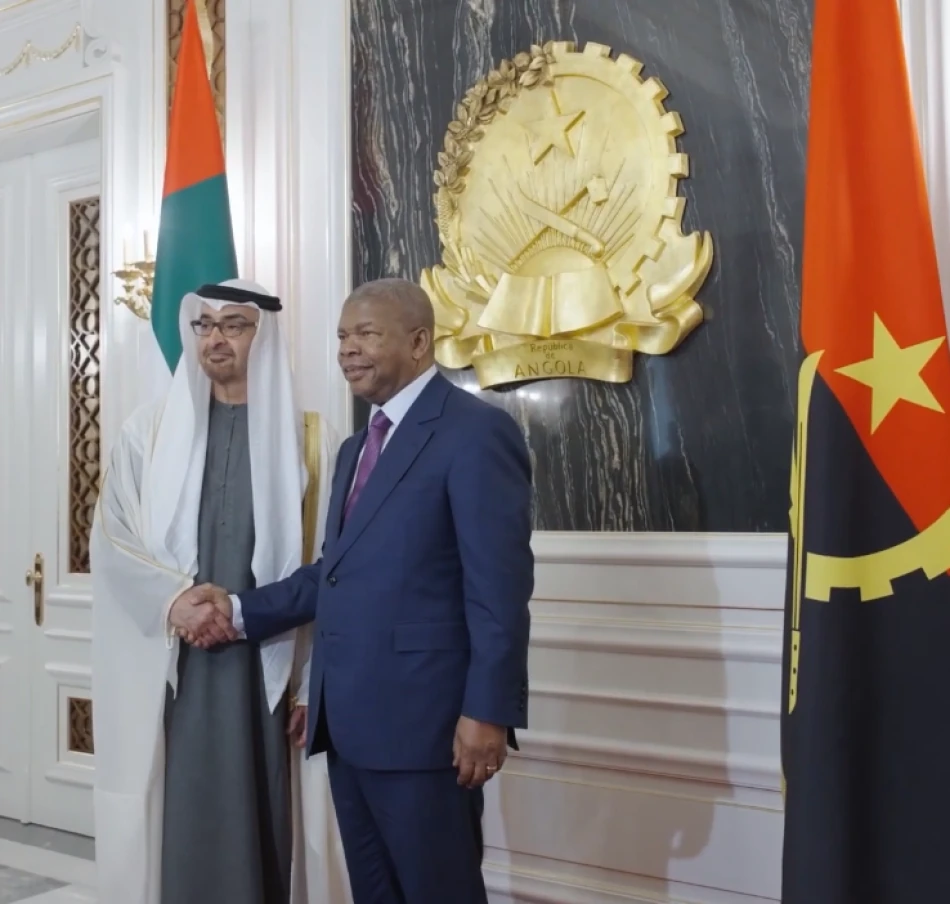
UAE President and Angola Leader Sign Comprehensive Economic Partnership Agreement, Boost Bilateral Ties
UAE-Angola Economic Partnership Signals Major Shift in Africa Trade Strategy
The UAE has signed a comprehensive economic partnership agreement with Angola, marking a strategic pivot toward deeper African market integration. With non-oil trade between the countries already reaching $2.17 billion in 2024 and growing at nearly 30%, this deal positions both nations to capitalize on Africa's emerging economic potential while reducing traditional oil dependencies.
Beyond Oil: A New Trade Architecture
The comprehensive economic partnership agreement witnessed by UAE President Sheikh Mohamed bin Zayed Al Nahyan and Angolan President João Lourenço represents more than diplomatic ceremony. The deal eliminates or reduces customs duties, removes unnecessary trade barriers, and expands market access for service exports—creating a framework that could reshape regional commerce.
Current trade figures underscore the partnership's potential. Non-oil trade grew 29.7% in the first half of 2024 alone, reaching $1.4 billion. This momentum suggests both countries are successfully diversifying away from oil-dependent economic models, a critical shift as global energy markets evolve.
Strategic Timing in a Shifting Global Economy
The UAE's move mirrors successful strategies deployed by Singapore and Hong Kong, which built economic hubs through strategic partnerships rather than purely domestic growth. As Western nations increasingly focus on "friend-shoring" and supply chain diversification, the UAE-Angola corridor offers an alternative route for businesses seeking African market exposure.
Angola, Africa's second-largest oil producer, has struggled with economic diversification for decades. This partnership provides a tested model—the UAE's own transformation from oil dependency to a diversified economy spanning finance, logistics, and technology.
Technology and Finance Integration Signals Deeper Ambitions
Beyond trade facilitation, the agreement package includes memorandums of understanding covering artificial intelligence cooperation and central bank collaboration. The AI partnership, signed by UAE Interior Minister Sheikh Saif bin Zayed, suggests both nations view technological advancement as essential to economic transformation.
The central bank cooperation agreement between the UAE Central Bank and Angola's National Bank could prove particularly significant. Similar arrangements have historically preceded currency swap agreements and alternative payment systems—potentially reducing both countries' reliance on dollar-denominated trade.
Agricultural and Infrastructure Implications
A separate agreement between UAE's Al Dahra company and Angola's Ministry of Agriculture and Forestry points to food security considerations. Angola possesses vast arable land but has historically imported most food products. UAE companies bring advanced agricultural technology and financing capabilities that could unlock Angola's agricultural potential.
Market and Investor Perspective
For investors, this partnership creates several opportunities. UAE-based companies gain preferential access to Angola's 35 million consumers and natural resources, while Angolan businesses can leverage Dubai's position as a global trade hub to reach Asian and European markets.
The timing aligns with increased institutional investor interest in African markets. Recent sovereign wealth fund investments and infrastructure projects across Africa suggest major economies recognize the continent's growth potential. The UAE-Angola partnership provides a structured entry point for this capital.
Regional Competition and Precedent
This agreement positions the UAE ahead of regional competitors in African market penetration. While Saudi Arabia has focused primarily on mega-projects and energy investments in Africa, the UAE's approach emphasizes comprehensive economic integration across multiple sectors.
The partnership also establishes a template for similar agreements across Africa. Countries like Ghana, Kenya, and Nigeria represent logical next steps for UAE expansion, particularly given existing trade relationships and complementary economic structures.
Long-term Strategic Implications
The breadth of cooperation areas—spanning political consultations, renewable energy, education, healthcare, and climate action—suggests both countries view this as a generational partnership rather than a tactical trade arrangement. This comprehensive approach increases the likelihood of sustained economic integration.
For global markets, the UAE-Angola partnership represents a shift toward South-South economic cooperation that could reduce traditional North-South dependency patterns. As both countries possess significant sovereign wealth and natural resources, their partnership could influence broader African development financing and trade patterns.
The success of this partnership will likely determine whether similar comprehensive agreements become the standard for UAE-Africa relations, potentially reshaping continental trade architecture in the process.
Most Viewed News

 Sara Khaled
Sara Khaled






